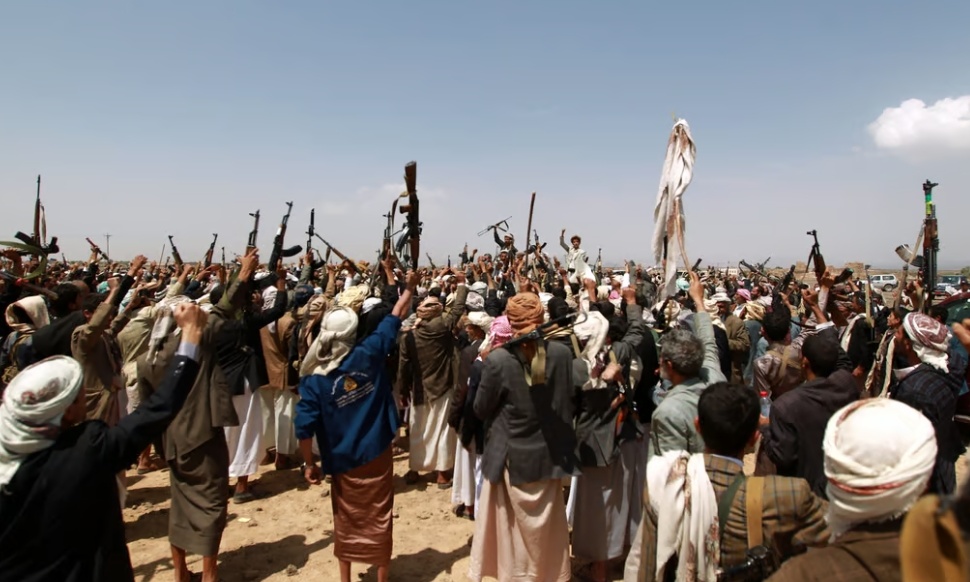The recent events surrounding the Iran-US conflict in the Middle East, with a particular focus on Yemen and the Iran-backed Houthis, have escalated tensions and raised concerns about the potential for a broader regional war. Several key developments have contributed to the growing instability in the region. Seizure of Iranian-made weapons The US Navy’s seizure of Iranian-made ballistic missile and cruise missile components from a vessel off the coast of Somalia, destined for the Houthis in Yemen, highlights Iran’s ongoing support for the militant group. The seized weapons, including propulsion, guidance, and warheads, were identified as components used by the Houthis in their attacks on international shipping in the Red Sea. This seizure further exposes Iran’s violation of UN Security Resolution 2216 and international law. Houthi attacks on international shipping The Houthi attacks on commercial shipping in the Red Sea have triggered a significant response from the US and its allies. The US and UK militaries have and continue to launch strikes against Houthi targets in Yemen as a direct consequence of the group’s aggression. The international community has become increasingly alarmed by the threat posed to one of the world’s most critical waterways, the Bab El-Mandeb Strait located at the southern tip of the Red Sea leading into the Gulf of Aden, the Arabian Sea, and the Indian Ocean. Despite the strikes, the Houthi group retains the majority of its offensive capabilities, indicating the complexity and persistence of the conflict. Redesignation of the Houthis The Biden administration’s redesignation of the Houthis as a “specially designated global terrorist” group indicates what some analysts are describing as a significant shift in the US approach toward the group. This measure reflects the gravity of the situation and the recognition of the Houthis’ destabilizing actions in the region. The redesignation may have broader implications for diplomatic efforts and potential future military actions. Escalating cycle of attacks and reprisals The recent wave of attacks and reprisals involving the US, its allies, and various actors in the Middle East has raised concerns of a broader regional war. The failure to deter the Houthis, as demonstrated by their continued maritime assaults, coupled with Iran’s support and praise for the group’s actions, exacerbates the potential for further escalation. Iran’s own strikes targeting alleged Israeli interests and its missile and drone attacks in Pakistan contribute to the overall volatility and unpredictability of the situation. Pakistan has responded with airstrikes of its own targeting sites in southeast Iran, increasing into the already brewing tensions throughout the Middle East. This goes alongside Iran’s ballistic missile/rocket attack targeting the US base in Ain Al-Assad of Al-Anbar Province in western Iraq. The US has also continued to lead preventive strikes on the Iran-backed Houthis in Yemen, taking out ready-to-launch missiles and various such sites.
Final thoughts
Iran’s role in regional meddling has become a significant concern. It is crucial to move beyond mere rhetoric and take concrete actions. The heart of the issue lies in Iran, and it is time to address the situation. To effectively counter the problem, we must focus on supporting the Iranian people who have been engaged in a tireless struggle against the ruling mullahs for decades. Their courageous acts of taking to the streets over the past five years demonstrate their determination for change. Supporting the aspirations of the Iranian people requires more than just empty words; it demands action. We need to actively support their cause and contribute to their efforts for a better future. One step towards this goal is acknowledging and recognizing the National Council of Resistance of Iran (NCRI), an opposition coalition representing the Iranian people’s interests. By acknowledging the NCRI, we demonstrate our commitment to the Iranian people’s aspirations and lend legitimacy to their cause. It is high time to take meaningful measures and put our words into action. The Iranian people have shown their resilience and willingness to fight for freedom and democracy. By standing in solidarity with them and supporting their struggle, we contribute to the dismantling of the oppressive regime. Efforts towards working with the NCRI can be an important first step in this process, signalling our support and paving the way for a more comprehensive approach to address Iran’s regional meddling and the aspirations of its people. The combination of these factors has some international officials and analysts emphasising the urgent need for de-escalation and diplomatic solutions to prevent the conflict from spiralling into a broader regional war. The US and its allies, along with regional and international partners, must work together to expose and interdict Iran’s support for the Houthis, and all its proxies across the Middle East, and restore freedom of navigation in the Red Sea. Efforts to address the root causes of the conflict should focus on containing Iran by reimposing and actually implementing sanctions on the regime in Iran as the main engine behind these escalating tensions, and meaningfully supporting the Iranian people’s aspirations for freedom and democracy.

